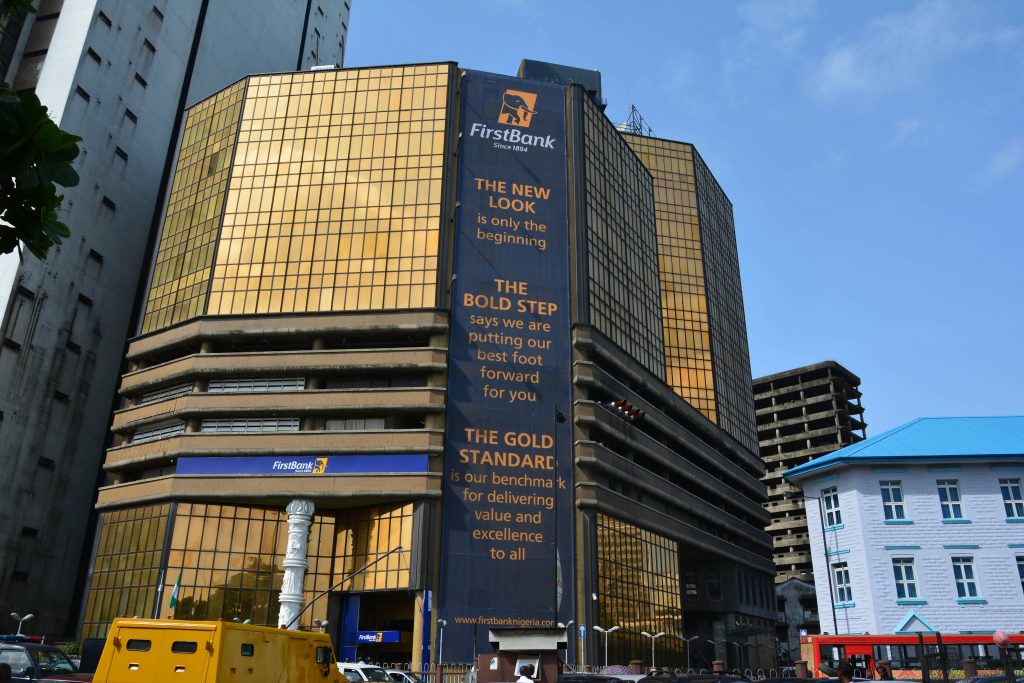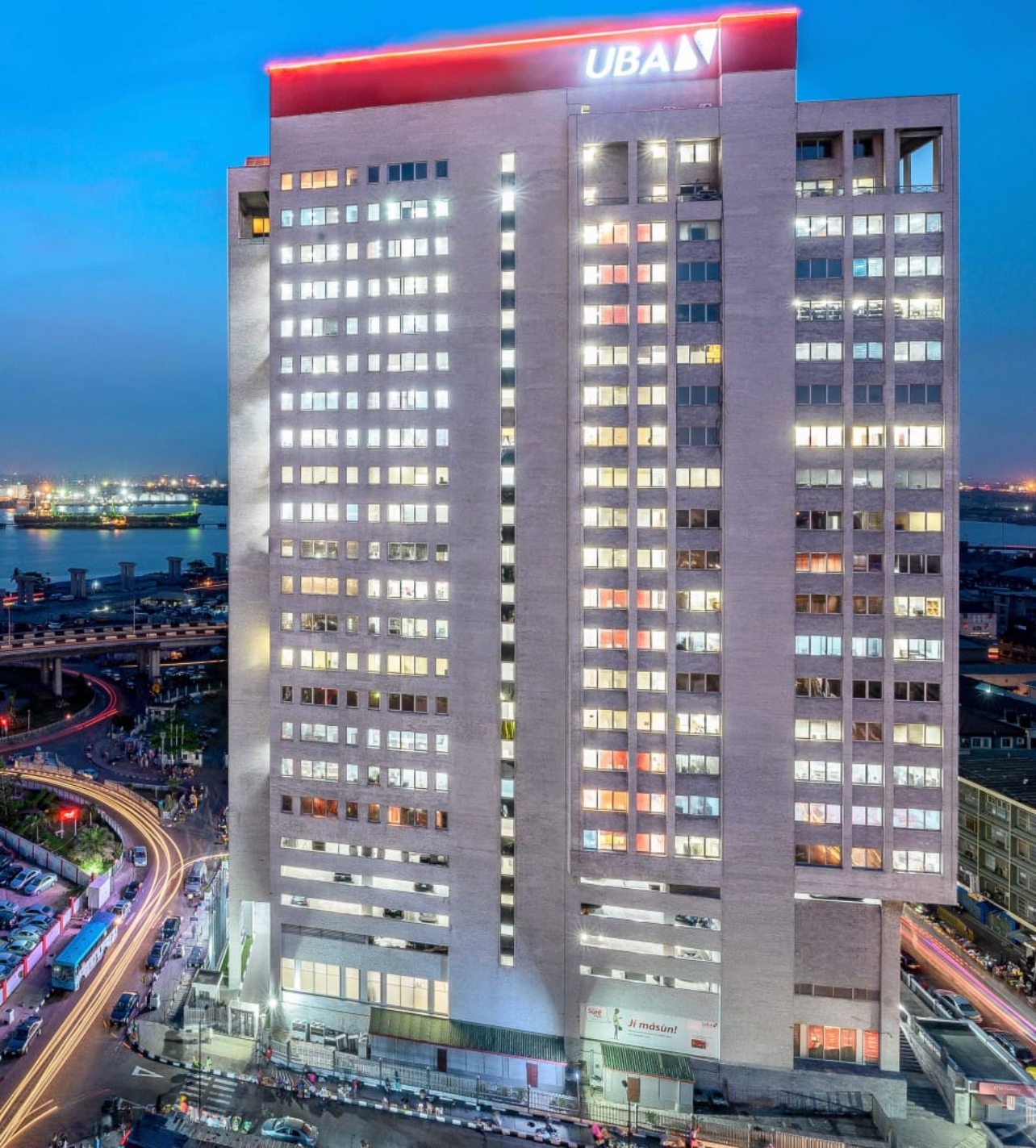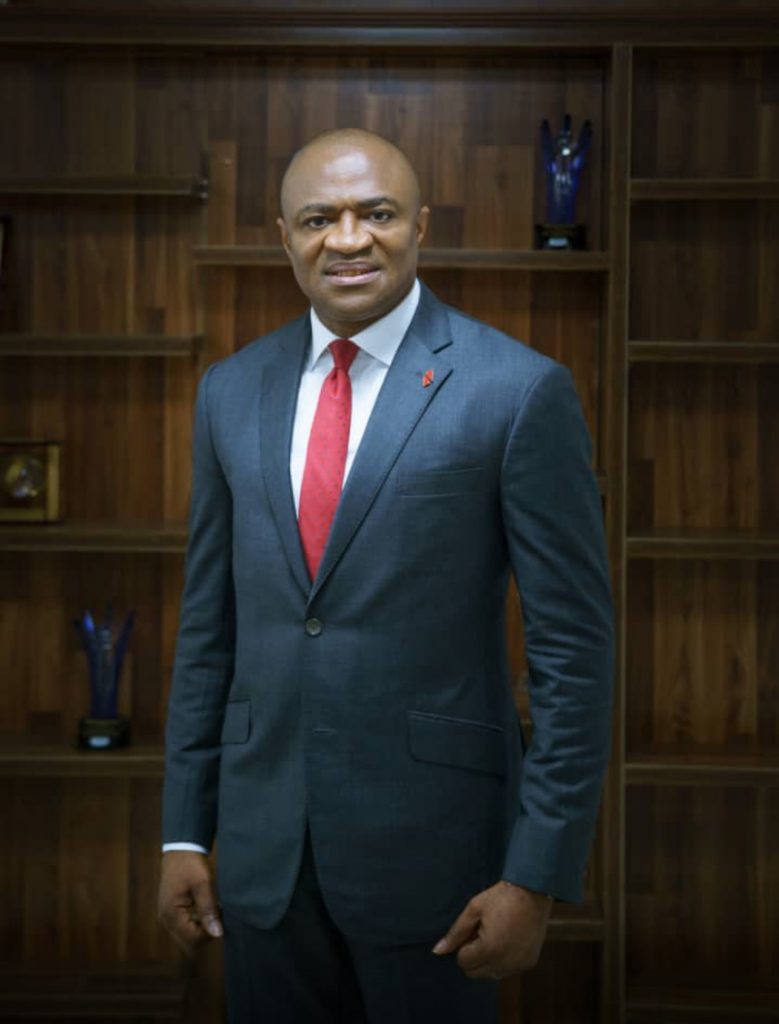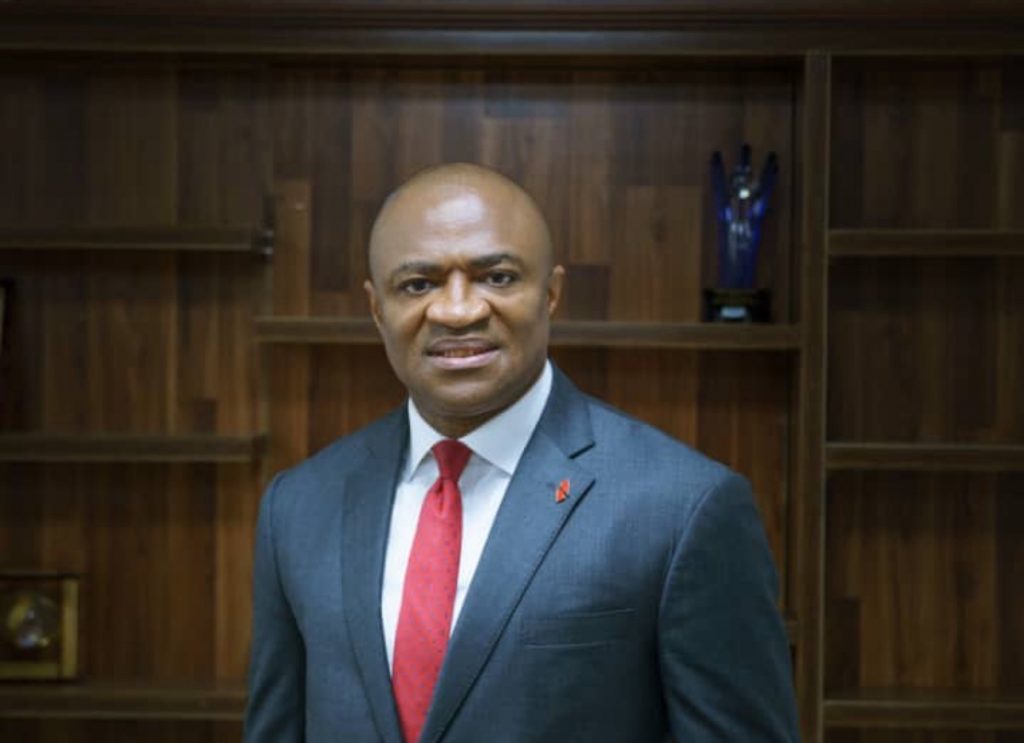brand
How FirstBank Employees are Making a Difference in their Immediate Environments Through the SPARK Initiative

 Every other day, social media brings us a picture or video of a dilapidated school somewhere in Nigeria or shares images of a distraught widow, a struggling roadside trader or street hawker, or some other hapless victims of the extremely harsh realities of living in Nigeria.
Every other day, social media brings us a picture or video of a dilapidated school somewhere in Nigeria or shares images of a distraught widow, a struggling roadside trader or street hawker, or some other hapless victims of the extremely harsh realities of living in Nigeria.
Immediately, as if on cue or automated, viewers launch into stinging attacks of government, public officials, the privileged class and even Nigeria itself. The attacking mob wastes no time in calling for the government’s head or the heads of public officials with responsibilities in the jurisdiction or sector where the unfortunate sights surfaced from.
The online mob seems unconcerned that while its eyes and ears, aided and locked in by the binoculars and headsets of social media, are completely focused on distressing situations it may not be able to help other than rant about, countless situations that it can help are calling for attention in its immediate neighbourhood every single day. Focusing on things so far away while ignoring or pretending not to see the things in one’s immediate vicinity is a human tendency which is well recognised. Journalists even have a term for a similar or related behaviour among their own. “Afghanistanism” is the tendency of the media to focus on news and happenings in remote places and other parts of the world to the exclusion or neglect of covering happenings and problems in the local environment of the media. It is like the psychological or emotional equivalent of the eye defect medical practitioners refer to as hyperopia or farsightedness. Sufferers can see objects that are far away but have difficulty focusing on objects that are up close.
By focusing on faraway objects people do not have to offer to give a helping hand but can offer their finger to point at others and their tongue to criticise and pontificate. Everyone can criticise and pontificate online or become an “e-warrior”, like Nigerians like to call it, fighting government and whoever and whatever in society they are unhappy with from the comfort and safety of their bedroom and behind their keyboard. It is the easiest of things to do but not the noblest or kindest. It is the well-trodden path but should never be confused with taking the high road in reaching out with compassion to people around whose lives and circumstances could do with some kindness.
Taking the high road rather than practising Afghanistanism or psychological hyperopia is the approach adopted by First Bank of Nigeria Limited, the premier bank in West Africa with its impact woven into the fabric of society. This approach has played an important role in sustaining FirstBank’s development-oriented services for over 127 years as the region’s foremost financial inclusion services provider. It has been a driving motivation for how the bank operates. FirstBank always considers the impact of all its operations and actions on customers and other stakeholders, including the environment, to ensure it is making a net positive difference in the end. And this orientation has attracted to the bank people who share a similar outlook – whether as employees, partners or other stakeholders. They look forward every year to an opportunity to follow in the footsteps of the bank and make a net positive difference in their own immediate environments. These men and women do not pretend that they can solve or intervene in all the challenging situations confronting people in their immediate environments but they do not refrain whenever they can lend a helping hand and make a difference.
Through an Employee Giving and Volunteering programme employees of FirstBank find a ready platform to fully identify with the compassionate disposition of the bank, which further has a number of initiatives that enable employees to give expression to this identification. The Start Performing Acts of Random Kindness (SPARK) Initiative is but one such initiative. Aimed at expanding and deepening FirstBank’s involvement within the communities of its various stakeholders, SPARK seeks to do so by integrating and institutionalising random acts of kindness in society. Among employees SPARK has inspired and encouraged kindness and empathy as well as consideration for others. It has also contributed to employee bonding and teamwork, which have been critical to enhancing work performance.
This year’s implementation of the SPARK Initiative has seen employees under the banner of their various departments make choices regarding the specific nature of intervention they would want to undertake and the specific group of people or institutions within their immediate communities that they would want to extend the milk of human kindness to. Employees and their departments could choose any one of the four areas that constitute FirstBank’s corporate responsibility and sustainability (CR&S) pillars: Education, entrepreneurship, health and welfare, and environment. Under education, they have had a choice to make between support for infrastructural facilities in schools, such as renovation of dilapidated buildings, painting of school buildings, and provision of laptops and desktops; or donation of items such as classroom chairs and tables, books and stationaries; or provision of scholarships for best students, feeding of school students per day or week, funding of a school initiative such as JETS club, bootcamp, space club, etc. If employees and their departments were interested in supporting entrepreneurship, then they had the chance to empower through entrepreneurship programmes of their choosing such as sponsoring youth and women to acquire skills like fashion designing, baking, hairstyling, make-up artistry, electrical repairs, event decoration and planning, catering, etc., or enabling entrepreneurs with tools and equipment to work or supporting SMEs and start-ups.
Where the health and welfare area was their preferred area of intervention, employees and their departments could choose from: donations to orphanages (selected from an approved list of orphanages); support to a good cause, for example lending a helping hand to the Down Syndrome Foundation; support to widows; support to people with health-related issues; and off-setting medical bills. And if employees and their departments were to decide to go for the environment, then they could choose from: support to environmental issues, such as support to Nigerian Conservation Foundation (NCF) initiatives; donation of garbage cans to a community; partnership with a recycling firm to recycle waste; support to LAWMA such as donating cleaning tools (brooms, dustbin parkers), etc.
While several departments in FirstBank did things worth showcasing so the good citizens of Nigeria (individual and corporate) can emulate, this piece has just enough space to accommodate the activities of only three departments: Human Capital Management and Development (HCMD), Compliance, and Marketing and Corporate Communications (M&CC) departments. The employees in these departments seemed involved in efforts to outdo each other in acts of kindness, which made more sense and would leave a real difference on the ground as against criticising and pontificating online on faraway issues.
The Human Capital Management and Development department decided that reaching out to one of the most vulnerable groups in Nigeria – underprivileged widows and their underfed children – was the best way they could stay true to the “Human” in their name. And employees in the department moved beyond their Marina location to the nearest environment where some of the most vulnerable widows are to be found to go show kindness. The Makoko community situated in Lagos Mainland and which CNN once described in a report as “Nigeria’s floating slum” was overwhelmed to receive the august visitors from HCMD bearing so much food stuff to benefit their widows and children. What they did not realise was the overwhelming sense of gratitude felt by their benefactors for the opportunity to be able to give back.
Tagged “Feed a Widow Initiative”, the undertaking was HCMD employees’ way of putting a smile back on the faces of widows in impoverished communities and they got more than they could ever have imagined. Their hosts received them with the broadest of smiles and said goodbye to them with the grandest of gratitude; and they left with very broad smiles on their own faces. The jury is still out on who between the hosts and their guests ended up with the broadest of smiles on the day. And given the “fierce contest” to outdo the other in smiling, one is again forced to wonder why people labelled e-warriors would choose to forfeit this kind of real joy for the joyless world they have locked themselves in by clinging on to Afghanistanism and psychological hyperopia.
Not so for employees in the Compliance department. Not to be outdone and, in fact, as though going up the hierarchy of human needs, Compliance employees decided that they would focus on the education need of their beneficiary community. HCMD had done an excellent job of providing the basic “stomach infrastructure” without which it would be difficult, if not impossible, to get any of the beneficiaries interested in any talk about more sublime matters like education and mental development. So, employees of Compliance department, in order to encourage pupils to continue their pursuit of education, procured Mathematics and English Language textbooks for 617 pupils who would be in senior secondary (SS) 1 and 2 classes of Gbara Community Secondary School in Jakande, Ajah in the next academic session. The visit to the school and book donation were undertaken when the pupils were in the third term preceding the new academic session.
The gesture was Compliance employees’ own way of giving back in such a manner as to relieve the pupils of this public school, particularly those from indigent homes, and their parents or guardians of the financial burden involved in providing textbooks for the two core subjects. It was also, in an uncanny way, an attempt by the employees to ensure the pupils were in full compliance with the requirements for taking on the two most important subjects in the secondary school curriculum, putting the pupils at a vantage position to excel in these two essential subjects. There were other benefits of the engagement that the employees noted. They observed that their presence in the school inspired the children, giving them “hope that a better life was within reach and could be achieved.” The employees thus expressed optimism that the engagement boosted the children’s interest in succeeding in life through the pursuit of education.
For employees of the Marketing and Corporate Communications department (M&CC), entrepreneurship was the area they decided to focus on, to make a difference in their own immediate environment. Every day they came to their office on Broad Street or the bank’s head office in Marina, they passed by a number of roadside traders around the various office buildings in the locations. They observed that some of these traders were exposed to the elements or having difficulties in their business and struggling to make ends meet, and decided that they would do something about it. And true to their word, they did something about it that made so much difference in the businesses and circumstances of the traders. They provided the traders the following: branded umbrella to offer shade from both sun and rain, improving the conditions under which they operated and their quality of life; branded chairs and tables to accommodate more customers in their corner as well as grants to boost their business capital.
Anyone who has met with employees in the corporate communications department of any major bank in Nigeria would readily admit that these professionals have among them some of the most skilful digital marketers around. So, it is not for lack of skills to be e-warriors that M&CC employees chose to extend the milk of human kindness flowing in them to roadside traders around their office rather than practise Afghanistanism. They could have chosen to concentrate all their time and resources on attacking the government online and blaming public officials for all the challenges in the economy and the spate of insecurity all over the nation and whatever else would make M&CC employees true champions of Afghanistanism and psychological hyperopia. But would that make any difference to the lot of the roadside traders around them and lessen their burden? So, M&CC employees chose the road less travelled but one that could deliver the desired impact, and it did.
There are so many lessons to draw and feelings to take away from the examples demonstrated by employees of these three departments in Nigeria’s foremost lender. Besides committing their time and resources to their chosen humanitarian initiatives using the platform of the SPARK Initiative that places FirstBank at the forefront of the social impact space through employee advocacy, the employees have shown that they have the milk of human kindness flowing through their veins. They have demonstrated that they would rather consider how they could extend kindness to people around them and make a difference than pretend not to see the situations affecting those around them while playing Afghanistanism and psychological hyperopia online.
For the rest of us who are not FirstBank employees, the message could not be clearer: The next time we feel like we must share on social media distressing images to provoke government-bashing or we feel constrained to make stinging comments on such images that are shared to criticise Nigeria, we should first pause and look around us. We should look to see if we can identify situations where we, not government or Nigeria, can make a difference. Then we should take our fingers off the keyboard and go out there or make that call that will make a difference in some other person’s life and circumstances. We should be like FirstBank and its employees. We should follow their example of trying to outdo themselves in showing kindness to others. We should start where we are with what we have, to make a difference right now – yes, this very minute and not some future time.
brand
GTCO Proudly Headlines the NPA Lagos International Polo Tournament as Main Sponsor— Championing Great Experiences and Heritage


Guaranty Trust Holding Company Plc (GTCO Plc) (NGX: GTCO; LSE: GTCO), one of Africa’s leading financial services groups, is proud to announce its continued support as the main sponsor of the NPA Lagos International Polo Tournament, one of Africa’s oldest and most prestigious sporting events. The 2026 edition will be held at the Lagos Polo Club, Ikoyi, from Tuesday, January 27 to Sunday, February 15, bringing together top local and international polo teams and spectators from across the continent and beyond.
The 2026 NPA Lagos International Polo Tournament will feature top‑tier teams competing for major prizes, including the Majekodunmi Cup, Independence Cup, Open Cup, Silver Cup and Low Cup, among others. Guests can expect a fusion of thrilling equestrian action, polo-inspired lifestyle showcase, and curated hospitality experiences. The event will also be livestreamed, allowing audiences online to share in the excitement and spectacle.
Commenting on GTCO’s role as main sponsor of the Lagos International Polo Tournament, Segun Agbaje, Group Chief Executive Officer, said: “This tournament, one of the oldest in Africa, celebrates not only the noble sport of polo but the values we hold dear as a brand: teamwork, discipline, fair play, and a commitment to excellence. Beyond the field, it showcases Nigeria and Africa to a global audience, reinforcing the continent’s place on the world stage. Our longstanding sponsorship of the NPA Lagos International Polo Tournament reflects our conviction that sport can amplify opportunity, foster connections, and deliver world-class experiences for all.”
The NPA Lagos International Polo Tournament has long been celebrated not only for its thrilling competition and equestrian excellence but also for its rich heritage and cultural resonance within Africa’s sporting tradition. GTCO’s sponsorship embodies the Group’s commitment to creating platforms that unite communities and drive social impact across diverse audiences.
brand
Fidelity Bank appoints Onwughalu as Chairman following completion of Chike-Obi’s tenure

 Tier one lender, Fidelity Bank Plc, has announced the completion of the tenure of Mr. Mustafa Chike-Obi as Chairman of its Board of Directors effective December 31, 2025, and the appointment of Mrs. Amaka Onwughalu as the new Chairman of the Board, effective January 1, 2026.
Tier one lender, Fidelity Bank Plc, has announced the completion of the tenure of Mr. Mustafa Chike-Obi as Chairman of its Board of Directors effective December 31, 2025, and the appointment of Mrs. Amaka Onwughalu as the new Chairman of the Board, effective January 1, 2026.
The board transitions are in alignment with the Bank’s policy and have been communicated to the Central Bank of Nigeria, the Nigerian Exchange Group, and other stakeholders.
Under Mr. Chike-Obi’s leadership, Fidelity Bank repaid its Eurobond, completed the first tranche of its public offer and rights issue that were oversubscribed by 237 percent and 137.73 percent respectively, expanded internationally to the United Kingdom, and received improved ratings from various agencies amongst a long list of achievements. His tenure also saw the Bank strengthen its capital position, record steady growth in customer deposits and total assets, deepen its digital banking capabilities, and enhance its corporate and investment banking proposition. The bank equally made notable progress in governance, risk management, and operational efficiency, all of which contributed to strengthened market confidence and the Bank’s sustained upward performance trajectory.
Reflecting on his tenure, Mr. Mustafa Chike-Obi said, “It has been a privilege to serve as Chairman of Fidelity Bank. The dedication of our Board, management, and staff has enabled us to reach significant milestones. I am confident that the Bank will continue to thrive and deliver value to all stakeholders.”
Mrs. Amaka Onwughalu’s appointment marks a new chapter for Fidelity Bank. She joined the Board in December 2020 and has chaired key committees. With over 30 years of banking experience, including executive roles at Mainstreet Bank Limited and Skye Bank Plc. She holds degrees in Economics, Corporate Governance, and Business Administration, and has attended executive programmes at global institutions. Mrs. Onwughalu is a Fellow of several professional bodies and has received awards for accountability and financial management
“I am honoured to lead the Board of Fidelity Bank at this exciting time. Our recent achievements have set a strong foundation for continued growth. I look forward to working with my colleagues to drive our strategy and deliver sustainable value,” commented Mrs. Onwughalu.
Ranked among the best banks in Nigeria, Fidelity Bank Plc is a full-fledged Commercial Deposit Money Bank serving over 9.1 million customers through digital banking channels, its 255 business offices in Nigeria and United Kingdom subsidiary, FidBank UK Limited.
The Bank is a recipient of multiple local and international Awards, including the 2024 Excellence in Digital Transformation & MSME Banking Award by BusinessDay Banks and Financial Institutions (BAFI) Awards; the 2024 Most Innovative Mobile Banking Application award for its Fidelity Mobile App by Global Business Outlook, and the 2024 Most Innovative Investment Banking Service Provider award by Global Brands Magazine. Additionally, the Bank was recognized as the Best Bank for SMEs in Nigeria by the Euromoney Awards for Excellence and as the Export Financing Bank of the Year by the BusinessDay Banks and Financial Institutions (BAFI) Awards.
brand
UBA Group Dominates 2025, Banker Awards, Emerges Africa’s Bank of the Year, For Third Time in Five Years


 ….Wins Best Bank in Nine out of 20 African Subsidiaries
….Wins Best Bank in Nine out of 20 African Subsidiaries
Africa’s Global Bank, United Bank for Africa (UBA) Plc, has once again, reaffirmed its leadership as one of the continent’s most innovative and resilient financial institutions, as the bank has, for the third time in five years, been named the African Bank of the year 2025 by the Banker.com.
UBA also won the Best Bank of the Year awards in nine of its 20 African subsidiaries, bringing its total awards this year to ten as UBA Benin, UBA Chad, UBA Republic of Congo (Congo-Brazzaville), UBA Liberia, UBA Mali, UBA Mozambique, UBA Senegal, UBA Sierra Leone, and UBA Zambia, all came out tops as the best banks in their respective countries, underscoring the bank’s strength across West, Central and Southern Africa and highlighting the depth of its Pan-African franchise.
The Banker.com, a leading global finance news publication published by the Financial Times of London, organises the annual Bank of the Year Awards, and this year’s edition was held at a grand ceremony at the Peninsula, London, on Wednesday.
The Chief Executive Officer, UBA UK, Deji Adeyelure, received the awards on behalf of the bank, representing the Group Managing Director/CEO, Oliver Alawuba, and was accompanied by the bank’s Head Business Development, Mark Ifashe, and Head, Financial Institutions, Shilpam Jha.
The Banker’s awards are widely regarded as the most respected and rigorous in the global banking industry, celebrating institutions that demonstrate outstanding performance, innovation and strategic execution.
In its remarks on UBA’s winnings, the banker.com said, “For the third time in five years, UBA Group has won the coveted Bank of the Year award for Africa. UBA Group time after time punches above its weight against its larger African rivals. The bank this year also takes home nine separate country awards (one more than it gained for its last continental win in 2024), equivalent to around a quarter of the awards for the continent, and more than any of its continent-wide rivals.”
Continuing, it said, “Perhaps even more impressive is the fact that the awards were won across a broad geographic spread, going to lenders based in the Economic Community of West African States (Benin, Liberia, Senegal, Sierra Leone, and former member Mali), the Central African Economic and Monetary Community (Chad, Republic of Congo) and the Southern African Development Community (Mozambique, Zambia). Its award wins were particularly notable in the highly competitive categories for Benin and Mozambique.”
The Banker also highlighted UBA’s strong financial performance and commitment to future growth. In 2024, the Group recorded a 46.8 per cent increase in assets and a 6.1 per cent rise in pre-tax profits in local currency terms, while continuing to invest significantly in talent and technology. West Africa remains UBA’s heartland, with operating revenue and profit increasing by 87 per cent and 89 per cent respectively in H1 2025.
The bank’s digital and innovation leadership was equally recognised. During the year under review, and launched its Advance Top-Up buy-now-pay-later feature on the *919# USSD platform, expanding financial access for customers, while the bank’s chatbot Leo continued its strong growth trajectory, with transaction volumes rising by 29 per cent year-on-year in H1 2025. Notably, in August, Leo became the first African banking chatbot to enable cross-border payments via the Pan-African Payment and Settlement System (PAPSS).
UBA’s Group Managing Director/Chief Executive Officer, Oliver Alawuba, while reacting to the achievement, said the recognition affirms the bank’s long-term strategy and customer-first philosophy.
“This honour reflects the strength of our Pan-African network, the trust of our customers, and the dedication of our people. Winning Africa’s Bank of the Year for the third time in five years is not by chance; it is a testament to disciplined execution, innovation, and a deep understanding of the markets we serve,” Alawuba said.
“Our nine country awards across diverse regions of Africa show that UBA is not just growing, but growing with impact. We remain committed to driving financial inclusion, supporting economic development, and deploying technology that makes banking simpler, faster, and more accessible to Africans everywhere,” he added.
United Bank for Africa is one of the largest employers in the financial sector on the African continent, with 25,000 employees group-wide and serving over 45 million customers globally. Operating in twenty African countries, the United Kingdom, the United States of America, France and the United Arab Emirates, UBA provides retail, commercial and institutional banking services, leading financial inclusion and implementing cutting-edge technology.
-

 news5 years ago
news5 years agoUPDATE: #ENDSARS: CCTV footage of Lekki shootings intact – Says Sanwo – Olu
-

 lifestyle6 years ago
lifestyle6 years agoFormer Miss World: Mixed reactions trail Agbani Darego’s looks
-

 health5 years ago
health5 years agoChairman Agege LG, Ganiyu Egunjobi Receives Covid-19 Vaccines
-

 lifestyle4 years ago
lifestyle4 years agoObateru: Celebrating a Quintessential PR Man at 60
-

 health6 years ago
health6 years agoUPDATE : Nigeria Records 790 new cases of COVID-19
-

 health6 years ago
health6 years agoBREAKING: Nigeria confirms 663 new cases of COVID-19
-

 entertainment1 year ago
entertainment1 year agoAshny Set for Valentine Special and new Album ‘ Femme Fatale’
-

 news9 months ago
news9 months agoBREAKING: Tinubu swears in new NNPCL Board


